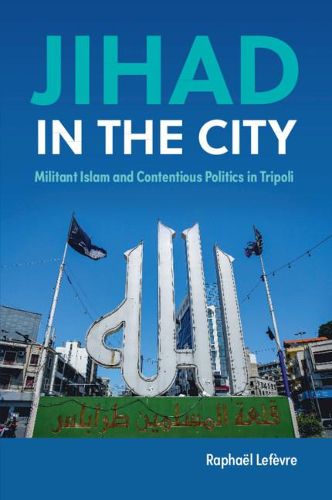Readings Newsletter
Become a Readings Member to make your shopping experience even easier.
Sign in or sign up for free!
You’re not far away from qualifying for FREE standard shipping within Australia
You’ve qualified for FREE standard shipping within Australia
The cart is loading…






Tawhid was a militant Islamist group which implemented Islamic law at gunpoint in the Lebanese city of Tripoli during the 1980s. In retrospect, some have called it ‘the first ISIS-style Emirate’. Drawing on two hundred interviews with Islamist fighters and their mortal enemies, as well as on a trove of new archival material, Raphael Lefevre provides a comprehensive account of this Islamist group. He shows how they featured religious ideologues determined to turn Lebanon into an Islamic Republic, yet also included Tripolitan rebels of all stripes, neighbourhood strongmen with scores to settle, local subalterns seeking social revenge as well as profit-driven gangsters, who each tried to steer Tawhid’s exercise of violence to their advantage. Providing a detailed understanding of the multi-faceted processes through which Tawhid emerged in 1982, implemented its ‘Emirate’ and suddenly collapsed in 1985, this is a story that shows how militant Islamist groups are impacted by their grand ideology as much as by local contexts - with crucial lessons for understanding social movements, rebel groups and terrorist organizations elsewhere too.
$9.00 standard shipping within Australia
FREE standard shipping within Australia for orders over $100.00
Express & International shipping calculated at checkout
Tawhid was a militant Islamist group which implemented Islamic law at gunpoint in the Lebanese city of Tripoli during the 1980s. In retrospect, some have called it ‘the first ISIS-style Emirate’. Drawing on two hundred interviews with Islamist fighters and their mortal enemies, as well as on a trove of new archival material, Raphael Lefevre provides a comprehensive account of this Islamist group. He shows how they featured religious ideologues determined to turn Lebanon into an Islamic Republic, yet also included Tripolitan rebels of all stripes, neighbourhood strongmen with scores to settle, local subalterns seeking social revenge as well as profit-driven gangsters, who each tried to steer Tawhid’s exercise of violence to their advantage. Providing a detailed understanding of the multi-faceted processes through which Tawhid emerged in 1982, implemented its ‘Emirate’ and suddenly collapsed in 1985, this is a story that shows how militant Islamist groups are impacted by their grand ideology as much as by local contexts - with crucial lessons for understanding social movements, rebel groups and terrorist organizations elsewhere too.